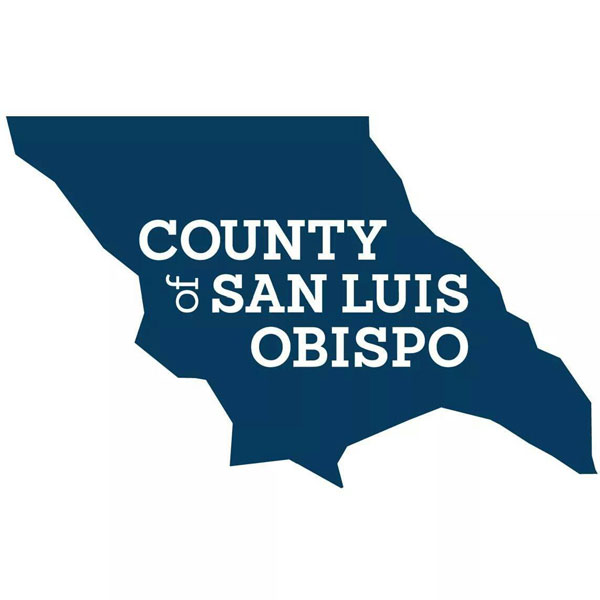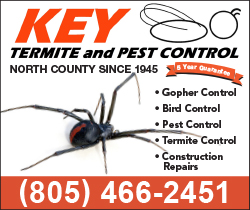COVID-19: County updates list of businesses that are allowed to stay open

–San Luis Obispo County released a list of essential businesses that may continue to operate during the “shelter at home” order on March 19, 2020. On Sunday afternoon San Luis Obispo County Emergency Services Director Wade Horton said, “We have received hundreds of questions through our call center on what is considered an essential business and what’s not.” Following the press conference, the county issued updated guidelines for businesses, employers, and employees.
Horton noted that, after discussion with the County Sheriff, firearms dealers were added to the list of businesses that may remain open. “Licensed firearm retailer” was the only new “open” business category highlighted in red by the county in the list below. Two other categories were added to the “Businesses to close their physical locations,” also highlighted in red, by the county.
Review the list below to see businesses allowed to operate in San Luis Obispo County during the COVID-19 coronavirus pandemic restrictions. Also, scroll down for businesses permitted to provide limited service, and businesses ordered closed, under the county order.
Click here: North County restaurants, wineries, and services open for business and ready to serve
Businesses that may remain open in SLO County
- Agriculture, livestock supply
- Airlines
- Alarm and security companies
- Animal boarding, pet supply
- Auto repair and service
- Banks and other financial services
- Blood donation centers
- Businesses that supply essential businesses with necessary supplies or items required to work from home
- Cemeteries, funeral parlors and internment services
- Childcare facilities (with limitations)
- Community gardens
- Construction, architecture, engineering services (all active construction in progress and all work related to emergency housing, care facilities, and essential infrastructure may continue)
- Convenience stores
- Distribution and delivery of essential consumer or business goods
- Domestic violence shelters
- Drug stores
- Dry cleaners and laundromats
- Electricians
- Essential government services
- Exterminators
- Farmer’s markets, produce stands
- Farming (all agriculture) and related support industries
- Food cultivation and related support services
- Food and goods delivery services
- Food banks and other organizations that
- provide assistance to the disadvantaged
- Food preparation facilities
- Gas stations
- Grocery stores
- Hardware stores
- Home-based care
- Home repair and maintenance (landscaping, pool service, repairs)
- Homeless service providers, shelters
- Hospitals, clinics, and medical offices
- Hotels and motels, bed and breakfasts,
- VRBO
- Licensed Firearm Retailer
- Mailing and shipping services
- Manufacturing of essential consumer and business goods
- Media, internet technology support
- Online wholesale or retail sales
- Pharmacies
- Plumbers, HVAC services
- Professional services (legal, insurance, title, accounting, mortgage brokers, payroll, and others as needed to assist with legally mandated or essential services)
- Property management
- Public transit, busses, rideshare, taxis,
- Uber, Lyft
- Railroads
- Recyclers, including electronics recyclers
- Re-entry or rehabilitation facilities
- Residential facilities
- Restaurants* (*See Limited Services List)
- Schools – public and private (distance learning, administration, and food only)
- Solid waste haulers
- Storage facilities
- Trucking and moving services
- Utility providers – water, power, gas, cable, internet, cell service
- Veterinarians
Businesses open for limited service
- Restaurants, coffee shops, bakeries, creameries, smoothie bars, delis, etc. (Serving food via drive-through, delivery, or pick up.)
- Churches (counseling, providing relief, and broadcasting religious services permitted – but no congregations of people.)
- Real estate sales and marketing (closings and telephonic activities permitted)
- Tasting rooms, breweries, distilleries (production/bottling may continue, pick-up and delivery are permitted, no on-site consumption)
- Schools – public and private (distance learning/online, housing, administration, and food only)
Businesses to close their physical locations
Business operations may continue if they can be provided online via video, email, YouTube, etc. with no in-person contact.
- Amphitheaters, concert halls, performing arts centers
- Amusement arcades
- Archery ranges, shooting ranges
- Arenas
- Art galleries
- Athletic supply, sporting goods
- Auto sales (in person)
- Banquet halls
- Barbers, hair salons, or nail salons
- Bookstores
- Botanical gardens
- Bowling alleys
- Car washes (full service)
- Casinos and cardrooms
- Climbing gyms
- Clothing stores
- Concerts/events at certified farmer’s markets
- Craft sales
- Dance halls/studios, dances
- Day spas, massage parlors
- Fairs, public exhibitions
- Fitness centers, gyms, tennis clubs
- Flight schools
- Health clubs, yoga centers
- Historical sites
- Libraries
- Miniature golf courses
- Model homes
- Motorcycle clubs
- Movie theaters, drive-in theaters
- Museums
- Music events or nightclubs
- Pet grooming
- Pool and billiards lounges
- Private social clubs
- Public swimming pools
- Raceways
- Rodeos, public equestrian events Roller skating rinks, roller derby
- Second hand/thrift stores
- Sports stadiums and facilities (all)
- Swap meet/flea market
- Tattoo and body piercing parlors
- Trampoline and bounce houses Water parks
- Zoos
- Follow all local COVID-19 coronavirus news updates
- North County restaurants, wineries, and services are open for business and ready to serve
- San Luis Obispo County COVID-19 website – readyslo.org.









